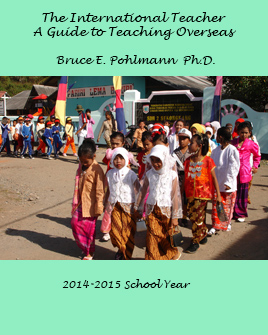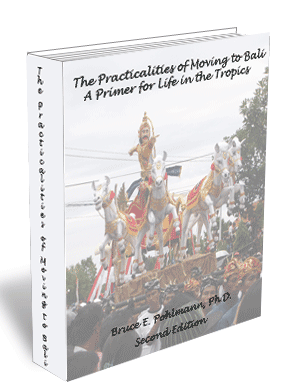Welcome to the Pakistan page
I moved to Pakistan in August 1999 and within a few months General Musharraf and the military arrested the elected Prime Minister Nawaz Sharif. We closed school for the day, but outside of a few small demonstrations the response from the public was overwhelmingly positive even though the coup was widely denounced by the Western democracies. Sharif's reputation for corruption was widespread, and the military promised to clean up the country. The coup was my introduction to the peculiar nature of the Pakistani world of politics.
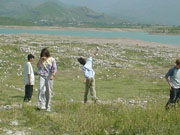 Pakistan was created after the Partition in 1947 of British
India into the largely Hindu country of India and the predominately
Muslim country of Pakistan. Pakistan is bordered by the Arabian
Sea on the south, India on the east, Afghanistan and Iran on the
west and China on the north. The climate is mostly hot, dry desert.
The north of Pakistan contains some of the highest mountains in
the world. The highest point in Pakistan is K2 which is 8,611
meters. Before the events of 9/11 we would take our Middle School
students off for a week of Outdoor School. The mountains in northern
Pakistan offer some of the most incredible views that I've come
across. The climate tends to one of extremes: the winters are
quite cold while the summers in the Punjab reach as high as 50
degrees Celsius. Pakistan is subject to most of the ecological
problems of other developing countries including frequent earthquakes,
deforestation, water pollution, drought, air pollution. It also
has frequent power outages especially during the Basant festival
in February when thousands of kites get entangled in the power
lines.
Pakistan was created after the Partition in 1947 of British
India into the largely Hindu country of India and the predominately
Muslim country of Pakistan. Pakistan is bordered by the Arabian
Sea on the south, India on the east, Afghanistan and Iran on the
west and China on the north. The climate is mostly hot, dry desert.
The north of Pakistan contains some of the highest mountains in
the world. The highest point in Pakistan is K2 which is 8,611
meters. Before the events of 9/11 we would take our Middle School
students off for a week of Outdoor School. The mountains in northern
Pakistan offer some of the most incredible views that I've come
across. The climate tends to one of extremes: the winters are
quite cold while the summers in the Punjab reach as high as 50
degrees Celsius. Pakistan is subject to most of the ecological
problems of other developing countries including frequent earthquakes,
deforestation, water pollution, drought, air pollution. It also
has frequent power outages especially during the Basant festival
in February when thousands of kites get entangled in the power
lines.
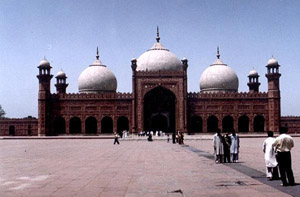 The population of Pakistan in July 2002 was approximately
147,663,429. The population growth rate is 2.06%. Infant mortality
is 78.52 deaths per 1000 live births. Pakistan is predominately
Muslim with approximately 97% of the population following Islam.
Of that 77% are Sunni and 20% are Shi'a. Religious battles between
Sunni and Shi'a especially in Karach occur far too often. Shortly
after my conversion to Islam, I attended prayers in a large mosque
in Lahore and was surprised to see armed guards stationed around
the mosque. The Badshahi mosque in Lahore can hold 100,000 people
for prayers.
The population of Pakistan in July 2002 was approximately
147,663,429. The population growth rate is 2.06%. Infant mortality
is 78.52 deaths per 1000 live births. Pakistan is predominately
Muslim with approximately 97% of the population following Islam.
Of that 77% are Sunni and 20% are Shi'a. Religious battles between
Sunni and Shi'a especially in Karach occur far too often. Shortly
after my conversion to Islam, I attended prayers in a large mosque
in Lahore and was surprised to see armed guards stationed around
the mosque. The Badshahi mosque in Lahore can hold 100,000 people
for prayers.
Pakistan is split into four provinces: Balochistan, North-West Frontier Province, Punjab and Sindh. Lahore is located in the Punjab. The India city of Amritsar is only a 30 minute drive although the land border was closed for much of the time that I lived in Pakistan. Pakistan is home to a variety of ethnic groups - Punjabi, Sindhi, Pashtun (Pathan), Baloch, Muhajir.
Pakistan is an impoverished country which is still developing. It has a low level of foreign investment. Tourism is negligible since 9/11 and the war in Afghanistan. The literacy rate is 42.7% with 55.3% for males and 29% for females. Violence against women is a major problem in Pakistan. While Westerners have often attributed this to Islam, the fact is that this is a cultural element and not inherent to Islam.
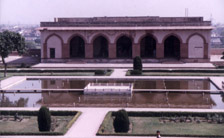 Lahore is the second largest city
in Pakistan with about 5.5 million people. It is the provincial
capital of Punjab. One of the more beautiful features of Lahore
are the many gardens around the city. Lahore is considered to
be the cultural and academic center of Pakistan. Lahoris are well-known
for their love of food. Lahore is considered to be the Mughal
center of Pakistan. Some of the most important historical monuments
are: the Royal Fort, the Badshahi Mosque, the Shalimar Gardens,
the tombs of emperor Jehangir, Noor Jehan, and Anarkali.
Lahore is the second largest city
in Pakistan with about 5.5 million people. It is the provincial
capital of Punjab. One of the more beautiful features of Lahore
are the many gardens around the city. Lahore is considered to
be the cultural and academic center of Pakistan. Lahoris are well-known
for their love of food. Lahore is considered to be the Mughal
center of Pakistan. Some of the most important historical monuments
are: the Royal Fort, the Badshahi Mosque, the Shalimar Gardens,
the tombs of emperor Jehangir, Noor Jehan, and Anarkali.
In spite of Pakistan's reputation as being a "dangerous" place, I never experienced any problems during my four years in Lahore even during the tense days following 9/11 and during the war in Afghanistan. There was certainly a lot of anti-American rhetoric flying around, but people always made it clear to me that it was the government they objected to and not the American people. I always felt safe wandering around Main Market on a Sunday morning shopping for fruits and vegetables for my monkeys and me. Lahoris are a warm and friendly people, and I regretted having to leave Lahore. The Pakistani culture is rich, vibrant and filled with dance and music. We used to have a number of cultural events that highlighted Pakistani culture during my four years at LAS.
![]() Lahore - The City of Gardens is a curious little site dedicated to promoting and preserving the heritage of the great city of Lahore. The site has a short article on the history of the city, and there are some photos of the historical places around the city. The site is only partially done, and it's not clear if someone is going to develop it more or not. Great idea, I hope someone puts some time and effort into it.
Lahore - The City of Gardens is a curious little site dedicated to promoting and preserving the heritage of the great city of Lahore. The site has a short article on the history of the city, and there are some photos of the historical places around the city. The site is only partially done, and it's not clear if someone is going to develop it more or not. Great idea, I hope someone puts some time and effort into it.
![]() Metroblogging
Lahore is a blog about Lahore, Pakistan. This is one of
those sites that I just stumbled across. I lived in Lahore
for four years and loved the city so I look forward to the
little posts about life in Lahore. If you're planning on visiting
Pakistan, or are just a former resident like me, this is a
blog that you'll want to check on regularly.
Metroblogging
Lahore is a blog about Lahore, Pakistan. This is one of
those sites that I just stumbled across. I lived in Lahore
for four years and loved the city so I look forward to the
little posts about life in Lahore. If you're planning on visiting
Pakistan, or are just a former resident like me, this is a
blog that you'll want to check on regularly.
 Wildlife of Pakistan, is a site that I just came across the other day by accident. This site is full of information about the wildlife of Pakistan. Well worth the look.
Wildlife of Pakistan, is a site that I just came across the other day by accident. This site is full of information about the wildlife of Pakistan. Well worth the look.
